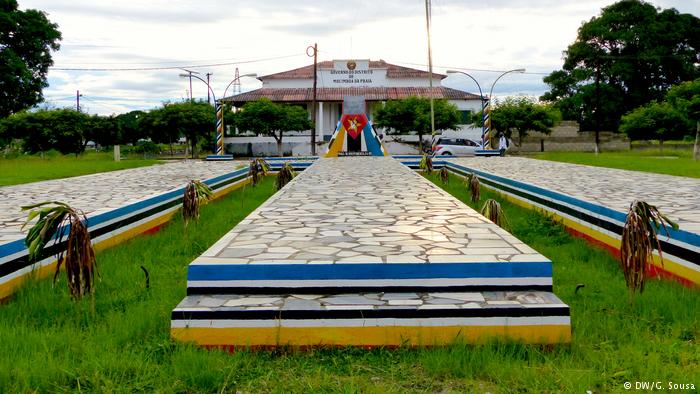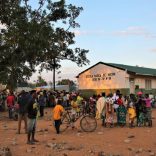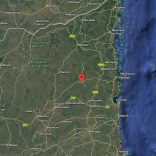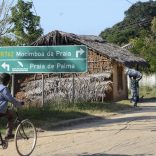Mozambique: At least 10 teachers killed in terror attacks since 2017 in north
Cabo Delgado: Population devastated by violence

DW / Mocímboa da Praia was also affected by attacks in the past
Residents of Cabo Delgado in northern Mozambique, lately the victim of violent attacks, have decided to institute community policing measures and assist more proactively in ongoing police investigations. President Filipe Nyusi has yet to comment on the latest attacks.
In less than ten days, 17 people had been killed by unidentified gunmen in the area. Another attack occurred yesterday in Namaluco, rising the death toll to 23. This type of attack began eight months ago and its frequency and brutality have only increased.
In reaction to the attack on May 27, in which 10 people adolescents and adults were hacked to death and beheaded with machetes near Olumbi in the region of Palma, Palma administrator David Machimbuko praised the local population’s courage, and describes what is being done to address the situation.
“We, as a population, have the capacity to fight and confront the enemy. From then on, they joined in with the Defence and Security Forces and went on a hunt for the bandits, for the evildoers, [to find out] where they were – a campaign that resulted in the deaths of those responsible,” he describes. “A total of 278 people joined forces and carried out the search in the woods.”

Popular justice
Sections of the Mozambican press (namely Canal Moz, 4 June) have suggested that the people killed by the Defence and Security Forces may have been members of the public who had joined in the search for the gunmen, a hypothesis David Machimbuko denies.
“No, they were not members of the search party. There were traces at the site that clearly demonstrated that they were the evildoers, because it was precisely in the area where these things happened, and the searchers never went anywhere in numbers of thirty. They have already crossed to the east and are already fleeing west, in an area where, because of the forest, we know that they are looking for a better hiding place,” he explains.
It seems that Palma’s administrator may have been wrong about their supposed flight, for, about a week later, at dawn on Monday 4th June, another attack took the lives of seven people. Several houses, commercial stalls and two minibuses were burned. Medicine may also have been stolen from a health centre that was vandalised.
The government however seems reluctant to acknowledge that the situation is worsening and that it is having difficulty stopping the attacks. Despite the gravity of the situation, analyst Paulo Wache still does not see any need for the army to intervene.
Police force is the most appropriate
“The army deals with the enemy. Prior to it being established that these people are enemies, or come from abroad and are trying to overthrow the state, the army would be an inappropriate, because the means the army uses would be disproportionate.”
Wache maintains that the police force remains the most appropriate tool to deal with the case, but concedes that it needs the support of the population in obtaining information.
“Irregular movements like this are better fought with intelligence than with force of arms,” he says.
But Mozambicans are dismayed that the government has not so far sent any message of comfort to the families of the victims and the communities affected.
Wache argues that frequent police pronouncements reflect the government’s position, but recognises that the government must react as soon as there is information.
“It makes sense that whoever is running a state has to speak out properly and not just say we feel a lot and stop there. But I think that, in a timely manner, this communication should perhaps happen in more detail,” he told DW.












Leave a Reply
Be the First to Comment!
You must be logged in to post a comment.
You must be logged in to post a comment.